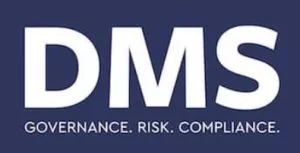As midyear approaches, Asian managers must prepare not only for a strong close to the calendar year, but for various regulatory uncertainties that may impact their operations. Given the global footprint most managers maintain today, regional executives need a clear grasp on how European-based regulation may alter fund distribution. In particular they should watch two upcoming regulatory events: The European Union (EU)'s Undertakings for Collective Investment in Transferable Securities V (Ucits V); and the European Securities and Markets Authority's pending decision on marketing passport availability for non-EU managers.
Without question, these events will directly affect Asia-based managers who have already adopted EU fund structures, such as Ucits and the Alternative Investment Fund Managers Directive (AIFMD), as a means to invest in new markets. This is not by accident. Ucits stands out as a predominant global brand for investing in equities and bond markets and remains the brand that managers have been choosing to invest in Chinese funds. And ultimately, Ucits V is an evolution of this brand, which is well established in Asia, both for managers and for investors.
So, how will Ucits V impact Asian managers in the coming months? Overall, Ucits V provisions will likely increase investor protections and bring them more in line with AIFMD, which alternative managers must satisfy to manage and sell non-Ucits funds in the EU. Some of these guidelines will include new remuneration policies for management companies that seek to improve risk management practices. Additionally, firms will be asked to meet new depositary rules that clearly define how operational procedures, such as net asset valuation (NAV) calculations, repurchase agreements and redemptions, are supervised.
Additionally, the rules will be followed closely by Asian managers who plan to use Ucits or AIFMD to raise capital through the Shanghai-Hong Kong Stock Connect and the upcoming Shenzhen-Hong Kong Stock Connect. Ultimately, any changes to these two pieces of legislation may impact their ability to secure such assets.
For many Asian managers in the alternatives space, the uncertainty is nothing new. After all, regional firms that traditionally used Cayman-domiciled funds have coped with AIFMD since its Jul. 22, 2014, implementation. Industrywide, more than 90% of Asian managers who focus on alternatives rely on Cayman-domiciled funds to raise assets. Today, these firms largely operate under the AIFMD's national private placement regime and, as a result, have adopted a selective marketing approach, often concentrating in fewer than three EU countries to help minimise regulatory and distribution costs. With Esma due to deliver its passport recommendation in July, many managers will need to study how to deliver their longer-term strategy for European marketing.
While these strategic adjustments may come at the cost of increased compliance and regulatory reporting, Asian managers are not deterred. They have commenced marketing under given national private placement regimes and have also created European-domiciled funds in order to provide EU investors with Asian-based alternative strategies.
Some challenges with marketing under national private placement regimes include navigating the registration process, which can be complex and costly. The process differs in varying EU countries and can take up to six months to complete. Once the registration is complete, finding the investors will be the next step. To overcome potential barriers, firms may wish to consider outsourcing to a qualified AIFMD solutions provider that can assist with registration services with the various European regulators.
Although complicated, these measures can be planned for effectively with the right internal communication, research and stress-testing. Management teams that have a strong game plan for adapting to potential regulatory changes will be much better positioned to grow their business in the coming months.
This article previously appeared in Ignites Asia on May 27, 2015.
The content of this article is intended to provide a general guide to the subject matter. Specialist advice should be sought about your specific circumstances.


